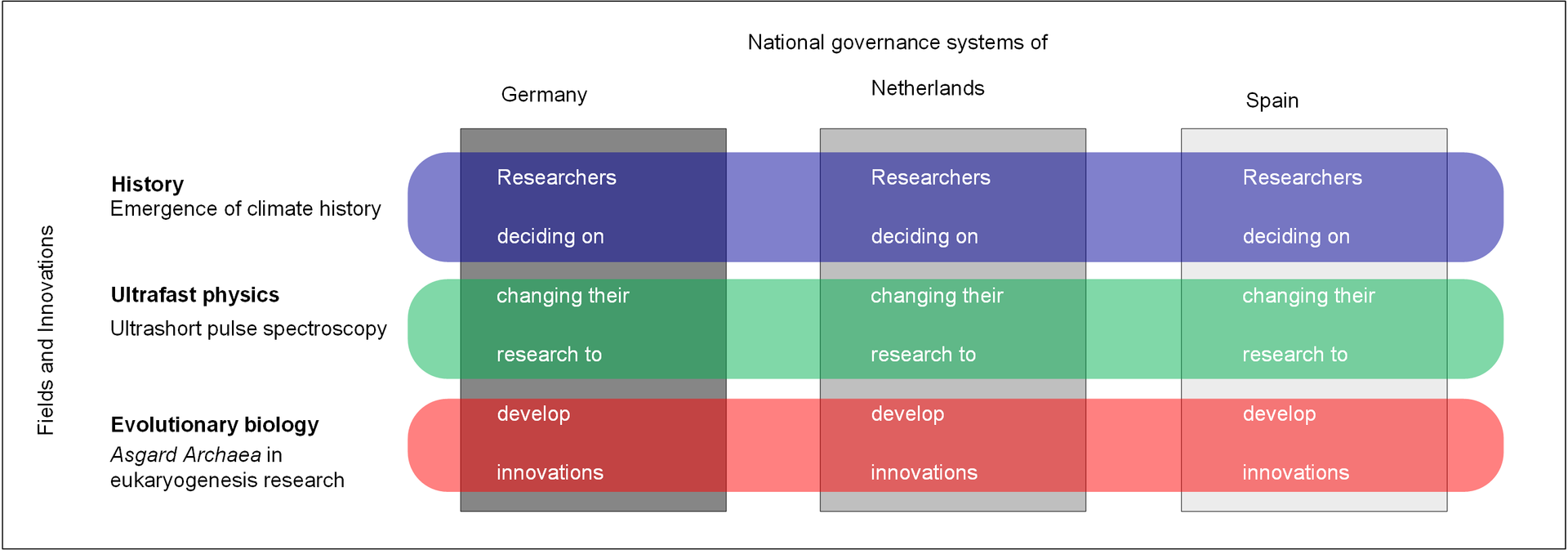Project: Governance and Epistemic Change
Aim
The project addresses a long-standing question in Science Studies: How do the conditions under which researchers in three countries and three scientific communities work make it possible for them to change the directions of their research?
Approach
In response to the previous failure of many studies to answer this question, we will apply a new strategy of causal analysis. We adopt from political science the strategy of “causal reconstruction” (Mayntz). This approach starts from observable change – in our case: changes in the content of research – and traces the process leading to this change backwards to its causes. We ask if state and university governance are partial causes of changes in research content and look for other partial causes, most importantly the internal evaluation systems of scientific communities.
Establishing causality requires a comparative approach that reconstructs processes leading to different effects under different conditions. Specifically, we compare:
- the development of three innovations
- three different fields
- three countries with different national governance systems

Data and methods
The empirical investigation combines:
- the analysis of documents like researchers’ publications, websites of research groups, and university websites
- bibliometric methods for the analysis of publication networks and their development
- interviews with researchers and university managers
- observations of events (e.g. conferences and seminars)
Team
Jochen Gläser
Technical University Berlin
* photo by Veit Braun

This research project is supported by the German Federal Ministry of Education and Research (BMBF).








